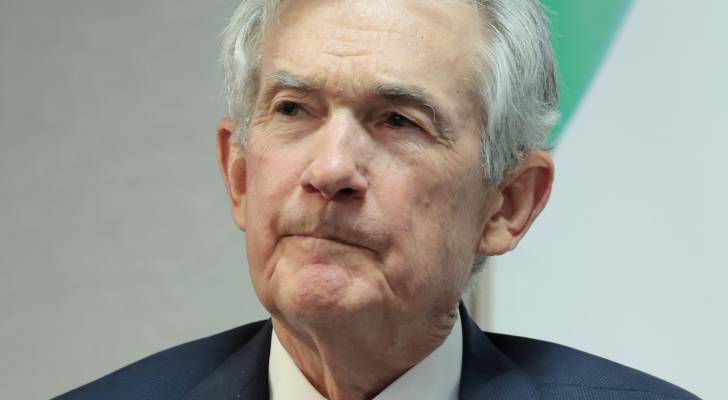
Despite policy shifts under the Trump administration — from tariffs to immigration to federal spending — Federal Reserve Chair Jerome Powell says the U.S. economy remains on solid footing.
While the long-term effects of the policy changes continue to unfold, Powell signaled no urgency to adjust monetary policy, citing a strong labor market and easing inflation as signs of underlying resilience.
Don’t miss
- I’m 49 years old and have nothing saved for retirement — what should I do? Don’t panic. Here are 5 of the easiest ways you can catch up (and fast)
- You’re probably already overpaying for this 1 ‘must-have’ expense — and thanks to Trump’s tariffs, your monthly bill could soar even higher. Here’s how 2 minutes can protect your wallet right now
- Gain potential quarterly income through this $1B private real estate fund — even if you’re not a millionaire. Here’s how to get started with as little as $10
Speaking at the Society for Advancing Business Editing and Writing (SABEW) conference, Powell noted that inflation has fallen significantly from its 2022 peak, even though recent progress toward the Fed’s 2% target has slowed.
“We look at inflation which is the change in prices and we’re seeing that it has come down quite a bit and unemployment is actually low, it’s very close to measures of maximum employment and the economy is growing,” he said.
New jobs data released in May showed 177,000 positions added in April. However, the unemployment rate remained unchanged at 4.2%.
While the numbers suggest stability, many Americans aren’t feeling it. With the cost of everyday essentials still climbing, consumer sentiment continues to lag behind the Fed’s optimism — a disconnect that could shape economic policy in the months ahead.
The market looks fine on paper
Recent employment may reflect a relatively stable U.S. job market, but Americans remain anything but reassured. A January survey from résumé service MyPerfectResume found that 81% of U.S. workers are worried about losing their jobs in 2025.
The Trump administration has introduced sweeping policy changes, including large-scale federal layoffs, deep budget cuts, new tariffs and strict immigration enforcement. While the full impact on the labor market has yet to be felt, these measures have already stoked anxiety across multiple industries — from government agencies to tech and manufacturing.
“The March employment data is the calm before the potential tariff-related storms,” Dana Peterson, chief economist at The Conference Board, told CNN.
Workers’ unease is understandable as they navigate a landscape filled with economic uncertainty and potential aftershocks. Even though job numbers haven’t plummeted, the fear of what lies ahead is keeping many employees on edge.
Read more: Want an extra $1,300,000 when you retire? Dave Ramsey says this 7-step plan ‘works every single time’ to kill debt, get rich in America — and that ‘anyone’ can do it
Is inflation really cooling?
For many Americans, the sting of inflation is still being felt — especially at the grocery store.
According to the USDA’s Agricultural Marketing Service, egg prices have cracked wide open — rising 63% over the past year. Bureau of Labor Statistics data shows the national average price for a dozen eggs hit $5.90 in February, making a basic breakfast item feel more like a luxury.
Powell acknowledged the ongoing strain during his remarks at SABEW, attributing much of today’s high prices to lingering pandemic-era inflation. He emphasized that overall inflation has cooled since its 2022 peak — but that the road ahead is uncertain.
The Trump administration’s new tariffs could reignite inflation in the coming months. Powell noted that it’s still too early to gauge the full impact, as details such as which goods will be affected and whether trade partners will retaliate remain unclear.
“Our obligation is to keep longer-term inflation expectations well-anchored and to make certain that a one-time increase in the price level does not become an ongoing inflation problem,” Powell said.
Now’s a good time to revisit your budget and take stock of where your money’s going. Small changes — like cutting back on impulse buys, pausing unused subscriptions or buying bulk — can free up more funds than you’d think. Even in times of uncertainty, a mindful approach to spending can bring a sense of control.
What to read next
- Don’t have the cash to pay Uncle Sam in 2025? You may already be eligible for a ‘streamlined’ handshake with the IRS — here’s how it works and how it can potentially save you thousands
- Robert Kiyosaki warns of a ‘Greater Depression’ coming to the US — with millions of Americans going poor. But he says these 2 ‘easy-money’ assets will bring in ‘great wealth’. How to get in now
- Here are 5 ‘must have’ items that Americans (almost) always overpay for — and very quickly regret. How many are hurting you?
This article provides information only and should not be construed as advice. It is provided without warranty of any kind.